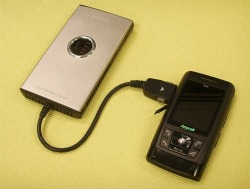FUEL CELLS
Statement of Purpose

The Designing of an Education Program for Kids in the 7th Grade on Fuel Cells
Problem:
The purpose of this project is to educate students in the seventh grade about fuel cells. The reason we chose to address this issue is to continue to promote a greener environment and provide a curriculum for teachers in middle schools. We feel that given the state of the environment, fuel cells are an extremely important tool to understand and students should understand how to apply these ideas to their daily lives. In addition, some schools may not have the resources to teach their students about fuel cells. We hope to provide an inexpensive solution to this problem.
Challenges:
Challenges that we may face in the development of this project are very clear. Regardless of how inexpensive a curriculum may be to implement, a school still might not have the resources to provide the fuel cell kits for their students. If this is the case, we could consider trying to create an alternative that requires no extra cost to implement. This challenge could be extremely time consuming to create such an alternative and time is limited in the semester that we have. In addition, schools may not have the time in the curriculums to add another topic to learn about.
Solution:
Our proposed solution is to simplify the process of teaching about fuel cells. Fuel cells are already a complicated process to understand and our goal is to create a learning tool that creates easy steps of explanation for students to see and understand how fuel cells work. Fuel cells are different from batteries in that batteries store the energy they use and when that energy runs out, the battery gets disposed of. Fuel cells operate using a flowing chemical. These chemicals are most commonly hydrogen and water and as long as there is a flow of chemicals into the cell, energy will continue to flow out.[1] The final part of our project is to create an inexpensive kit that teachers could use in their classrooms with the students.
Implementation:
Our course of action will be to create this curriculum and prepare the kits. We will propose it to teachers in Rhode Island school systems that do not have fuel cells implemented into their yearly curriculums already. We hope that teachers will like the methods that we have created and use them year after year to teach kids about energy source alternatives and create a greener environment.
[1] http://auto.howstuffworks.com/fuel-efficiency/alternative-fuels/fuel-cell.htm
Problem:
The purpose of this project is to educate students in the seventh grade about fuel cells. The reason we chose to address this issue is to continue to promote a greener environment and provide a curriculum for teachers in middle schools. We feel that given the state of the environment, fuel cells are an extremely important tool to understand and students should understand how to apply these ideas to their daily lives. In addition, some schools may not have the resources to teach their students about fuel cells. We hope to provide an inexpensive solution to this problem.
Challenges:
Challenges that we may face in the development of this project are very clear. Regardless of how inexpensive a curriculum may be to implement, a school still might not have the resources to provide the fuel cell kits for their students. If this is the case, we could consider trying to create an alternative that requires no extra cost to implement. This challenge could be extremely time consuming to create such an alternative and time is limited in the semester that we have. In addition, schools may not have the time in the curriculums to add another topic to learn about.
Solution:
Our proposed solution is to simplify the process of teaching about fuel cells. Fuel cells are already a complicated process to understand and our goal is to create a learning tool that creates easy steps of explanation for students to see and understand how fuel cells work. Fuel cells are different from batteries in that batteries store the energy they use and when that energy runs out, the battery gets disposed of. Fuel cells operate using a flowing chemical. These chemicals are most commonly hydrogen and water and as long as there is a flow of chemicals into the cell, energy will continue to flow out.[1] The final part of our project is to create an inexpensive kit that teachers could use in their classrooms with the students.
Implementation:
Our course of action will be to create this curriculum and prepare the kits. We will propose it to teachers in Rhode Island school systems that do not have fuel cells implemented into their yearly curriculums already. We hope that teachers will like the methods that we have created and use them year after year to teach kids about energy source alternatives and create a greener environment.
[1] http://auto.howstuffworks.com/fuel-efficiency/alternative-fuels/fuel-cell.htm
